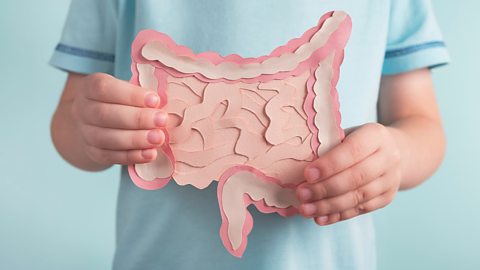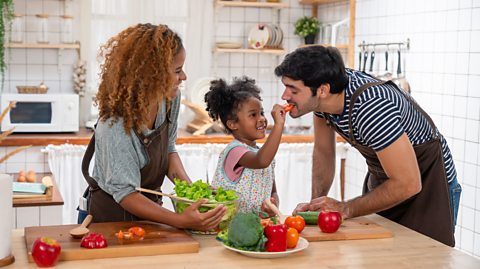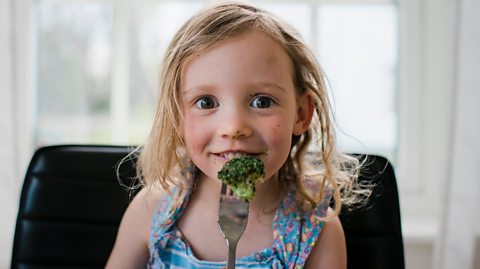There are more and more stories in newspapers and on TV about the importance of gut health.

Some parents might be wondering how they and their child may be affected and be looking to see if they can make changes to their family gut health. Although this may seem like another potential fad – it is an area which has been academically researched. Many experts now think it can be key to our own - and our children’s health.
To explain what gut health is and its importance, and to give advice on how to look after your children’s gut health, Parents’ Toolkit has spoken to Dr Hussain Al-Zubaidi, GP and Lifestyle Doctor and Bahee Van de Bor, Paediatric Dietitian & Children’s Nutritionist.

What is gut health?
“Gut health refers to the balance and function of microorganisms living in the digestive tract,” explains Dr Hussain, “The gut is a key centre for our immune system, helping to distinguish between harmful and harmless substances.”
What are the benefits of looking after your gut health?
There are many benefits to keeping your gut healthy, according to Dr Hussain, “A healthy gut generally means fewer issues like bloating, gas, constipation, or diarrhoea. Many of the common diseases of our modern life are believed to be partly attributed to a declining gut health in developed societies. These include type 2 diabetes, obesity, depression, anxiety and irritable bowel syndrome.”
As well as being key to our physical health, the gut might also help our mental health. “There is growing evidence to support what is called ‘the gut-brain axis’.
This signifies the link between gut health and mental wellbeing, as the gut produces chemicals like serotonin which impact our mental wellbeing.”
– Dr Hussain
What are prebiotics and probiotics?

There are two words you might have heard people mention when they talk about gut health: prebiotics and probiotics.
Dr Hussain explains, “Prebiotics are plant fibre that our gut bugs feed off, supporting their growth and spread. Probiotics are the gut bugs themselves! The (mainly!) good bacteria that can be found in a number of food sources that we can add to our existing pool of bugs in our gut.”

What foods have prebiotics and probiotics?
According to Dr Hussain, the kind of prebiotic food our gut bacteria love to eat include, “onions, leeks, peas, apples, bananas, kiwi, lentils, oat bran, garlic, chicory and seaweed,” and that you can find probiotics in, “Sauerkraut, miso soup, kimchi, kombucha, kefir and pickled vegetables.”
What can I feed my child for a healthy gut?
According to Bahee, some of the products you might think are important when it come to gut health aren’t as important as you might think, “We often think our children need to drink kefir and kombucha or eat fermented foods like kimchi for good gut health, but this simply isn't true. The traditional guidelines of encouraging your child to eat wholegrain/wholemeal breads/pasta and at least five servings of fruit and vegetables is an excellent way of looking after their gut health. The key is to encourage them to try a variety of different fruit and vegetables if possible.”
How can I eat foods high in probiotics on a budget?
Dr Hussain agrees that the key is eating a variety of different fruits and vegetables, and he has ideas of how to do that cheaply, “Many supermarkets run schemes where you can purchase vegetables and fruits at discounted rates and they will alternate the ones on offer. That works great for our aims as we want to avoid having the same vegetables all the time to promote diversity of prebiotics.”
“Frozen vegetables are fine, as well as tinned,” says Dr Hussain, “And certain supermarkets do wonky vegetables… I often go and pick these up as although they may not look as pretty, they are just as nutritious and there are tons of fruits and vegetables in the box.”
How can I introduce prebiotic foods and probiotic foods to my child?
Bahee says that when making these changes, you should avoid a sudden overnight shift, “For children, I often recommend making small changes to begin with. Plant foods are rich in fibre, so it's best to gradually increase portion sizes so that their gut can slowly adjust to digesting more fibre.”
Dr Hussain agrees that it’s a good idea to introduce new foods slowly, “This helps identify any food allergies or sensitivities. Watch for signs of allergic reactions, such as rashes, swelling, or difficulty breathing. If you notice any of these signs, consult your healthcare professional.”
What foods should I avoid giving my child when thinking of gut health?

One type of food Dr Hussain would avoid is ultra-processed, “There is a growing body of evidence to link the high consumption of ultra-processed food in the population with a long list of long-term health conditions. Over 50% of the UK adult diet is made up of ultra-processed food, while it is over 70% in children.”
“Examples [of ultra-processed food] include sugary snacks, chocolate bars, pastries, instant noodles, and pre-packaged meals.”

Recipe ideas for good gut health for children
Every meal you make for your child can help build their gut health. Dr Hussain suggests at breakfast, “Why not add some nuts, seeds or fruit into your porridge. And instead of just having a plain egg omelette add prebiotics like onion, garlic, leeks and peas!” and Bahee’s advice is, “overnight oats or porridge rich in fibre paired with fruit is a tasty and nutritious way for children to start their day.”
At lunch Bahee suggests, “Swap white bread for wholemeal or wholegrain breads and pop at least one serving of fruit and veg in their packed lunches e.g. carrot sticks, banana, clementines,” and Dr Hussain advises, “We want to avoid having the same lunch every day. Swap your sandwich for a bowl of quinoa, buckwheat and bulgar wheat. They are easy to prepare and last a long time so you can batch up.”
These recipes from BBC Food offer healthy budget meals for the family.
For dinner time, Dr Hussain says, “Look to have a side salad of raw fresh vegetables to go alongside your meal. Look to eat it first as fibre before carbohydrates likely blunts sugar spikes, plus it can prevent over-eating of high-calorie foods,” and Bahee advises, “Encourage family meals and use wholegrains as a base where possible. Quinoa or stir-fry dishes are another delicious way of getting plant foods into children. I also like to open a can of beans and mix this into a meat-based sauce to increase plant foods.”
4 tips for keeping your childs' gut healthy
Now you know about gut health, hopefully you feel ready to try and look at what changes you could make to improve your children's gut health. Dr Hussain has some final tips on how to keep your family focused on their gut health:

Colourful plates: Create vibrant, colourful meals with a variety of fruits and vegetables. Let kids help pick out different coloured produce at the shop.
Food art: Turn meals into fun shapes or characters using healthy ingredients. For example, make a smiley face with fruits on their plate.
Storytime: Read books about healthy eating and the importance of good gut health.
Interactive games: Create games or challenges, like a "rainbow food challenge" to see how many different coloured fruits and veggies they can eat in a week.


More from BBC Bitesize Parents' Toolkit…
Parents' Toolkit
Fun activities, real-life stories, wellbeing support and loads of helpful advice - we're here for you and your child.

Five tips for helping your kids to eat healthily all year round
Healthy eating hacks for parents from dietitian Priya Tew.

How do I get my kids to eat the right foods? - The Super Tutors
Catherine Jeans, 'The Food Know-It-All', explains how you can help your child find a healthy balance in their diet.

Five tips for coping as a parent during the cost-of-living crisis
Parents' Toolkit have some recommendations of charities and organisations that you can access to help you and your family cope with the cost-of-living crisis.

Fifteen easy lunchbox ideas
Looking for inspiration for your child’s lunchbox? Nutritionist Catherine has fifteen lunchbox ideas to keep primary school children energised

What's the best food for my child's brain, mind and mood? - The Super Tutors
Catherine Jeans, a.k.a. 'The Food Know-It-All', explains how food affects a child's sleep, learning and mood.
